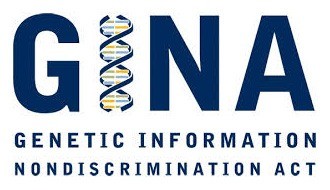Policy Archive
Successful Effort
Florida Enacts Sweeping Genetic Protection Law
July 1, 2020 - Florida just became first state to enact a law that protects genetic information from life, long-term care and disability insurers, which are exempt from the national protections provided by the Genetic Information Nondiscrimination Act (GINA).
GINA prevents health insurers and employers from using genetic information to discriminate. For group and individual health insurers, as well as federally regulated health plans, GINA prohibits:
 looking at predictive genetic information or genetic services before enrollment;
looking at predictive genetic information or genetic services before enrollment;- "requesting or requiring" that individuals or their family members take a genetic test;
- restricting enrollment or coverage based on genetic information; or
- changing premiums based on genetic information.
Unfortunately, GINA doesn't apply to life, disability or long-term care coverage so these insurers are permitted to ask about health, family history of disease or genetic information for policy applicants—and to deny coverage or increase rates based on that information.
Without comprehensive federal genetic privacy regulation, some states have adopted laws that restrict third parties—such as insurers or employers—from accessing genetic data without consent. The new Florida law, however, is the most comprehensive in the U.S. and sets the stage for future expansion of genetic protections.
The Florida law states that insurers cannot require or ask for genetic information or use genetic test results in any manner. A person can volunteer DNA information from a genetic test—such as BRCA or another mutation—to insurers, but they are not required to do so. Even if genetic information is shared, the insurers cannot deny coverage, limit, or cancel insurance coverage, or set different premiums based on genetic information or DNA.
It is important to note that the law does allow life, long-term care and disability insurers to consider the diagnosis of an illness or disease such as cancer that is in a person's medical records. A cancer diagnosis can disqualify you from coverage but insurance companies may still offer you a plan if you've been in remission for 3-5 years (the timeframe varies between insurance companies).
The law applies to insurance policies starting or renewed on or after January 1, 2021.